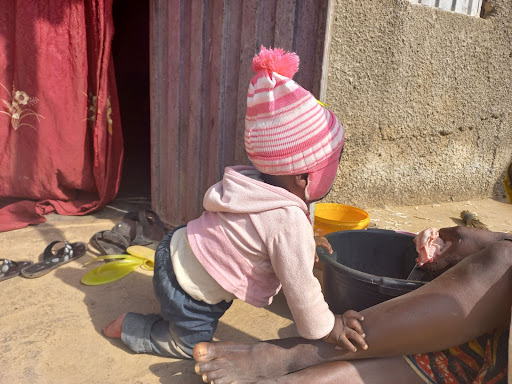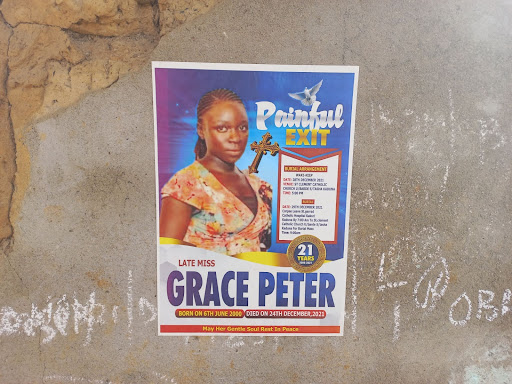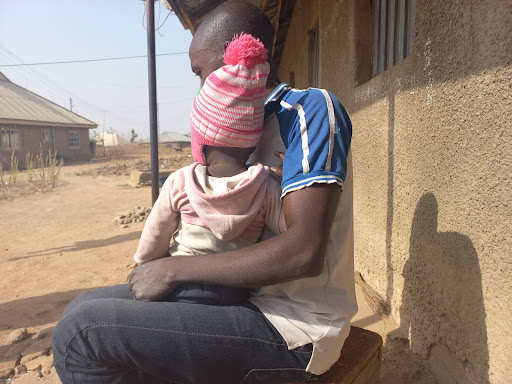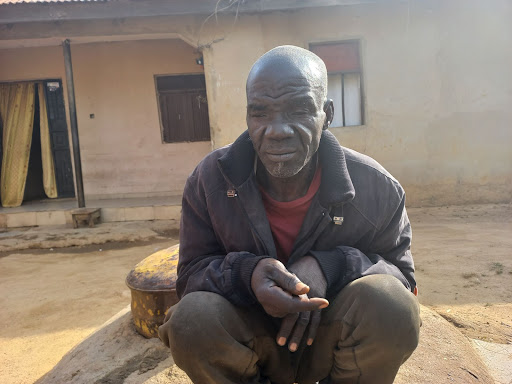Christmas With Terrorists: The Experience Of A Toddler And His Sisters In Kaduna
They were among the over 20 persons kidnapped on Dec. 21, 2021, in Unguwan Gwari, Kaduna, Northwest Nigeria.

Baby Emmanuel will likely never remember how he spent Christmas with terrorists in the forests of Kaduna. He’s only a year and four months old.
One moment he was home alone with his three sisters, the next he was far, far away after terrorists kidnapped over 20 persons in Unguwan Gwari community of Sabon Tasha, Chikun Local Government Area (LGA) of Kaduna State, Northwest Nigeria.
Gone
Nasara Emmanuel returned home from her evening trade on Dec. 21 to discover that her four children, Susan, 17, Josephine, 15, Precious, 12, and their baby brother were all gone.

“There was still pudding on the fire that I had told them to drink,” she told HumAngle.
But all was not lost. Away from home, Susan, her first daughter, had a strong grip on her little brother. The terrorists had kidnapped members of Gwari community in batches that fateful night. They hid their captives close to a river and returned to capture more. Locals said even after the military came, the terrorists were still around and only laid low in the bushes.
Around Unguwan Gwari, people like Grace Peter, 21, who would later be killed as a warning to the community, was accosted on her way to buy noodles. She was not the only one snatched off in that fashion. Shadrack Dogo, also 21, would be ordered to lie flat on his stomach on his way back with a measure of beans he had just purchased.

Done with their mission, the terrorists herded their victims to a place not far from the community where they hid their motorcycles. “We reached our destination around 3 o’clock in the morning,” Susan narrated. “There, they didn’t beat us. They only beat women, men and young boys for money.”
Baby is free
“We didn’t cry when Christmas day came. We were all happy to be alive,” Susan told HumAngle. “We prayed and asked for God’s intervention. Day and night we were meditating and asking God for deliverance even though we had sinned against Him.”

There were about 30 captives in the camp, Josephine, her sister recalled. “We were given rice and beans to eat.”
On Christmas day, “I felt bad and sad,” she said. “[But] I drew strength from my elder sister because she was strong for me.”
When Josephine and others cooked, their abductors told the captives to dance because it was Christmas day. “None of us stood up,” Josephine said and added, “but in my heart I was singing Christmas songs.”
Then on New Year Day, the terrorists roused Susan and, with the baby on her back, put them on a motorcycle and rode them out of the camp. They were dropped in a village deep within the forest, which Susan did not know. “They told me to follow a certain bush path,” she narrated. “They said I should go straight, that if I got lost it wasn’t their business.”
So, again, Susan continued the tedious journey with her little brother on her back.
“We met some Fulani men on the way. They were going to the mosque. We told them what happened and they took us to a point where they said we should stop a car and tell them we are going to Abuja junction,” she continued. “When we reached a military checkpoint, the soldiers fed us and took us to a place to bath. They then took us to their hospital in Kawo.”
More returnees
On Friday, Jan. 7, more people were released and Susan’s family was complete once again.
Not far from Susan’s home, Yohanna Dogo, 69, and his wife rejoiced at their son’s return. Shadrack Dogo, 21, was the one abducted on his way home with a measure of beans his mother had sent him to buy.

“From the beginning, our son thought they were soldiers,” Yohanna told HumAngle.
“I was worried, but we went into prayers and I left everything to God and asked Him to do what He willed,” his wife added. Then Christmas day came and their son was still in captivity. “We begged around because we had no money,” she said.
“I didn’t even know there was Christmas,” Yohanna chipped in. “We gave a total of N820,000 in two batches. First N520,000.”
Neighbours move
Yohanna, a father of eight, is a stubborn man when it comes to the idea of leaving the humble house he built with his sweat. “Where will I go? This is my house. Even if they come to kill me, I am not going anywhere else. You can die anywhere,” he pointed out.
But not many residents are this daring.

Oliver Ogwu only visited his now abandoned house in Unguwan Gwari because he needed to pick a few things. He is still terrified that his wife and three children aged 15, 13, and 12, had to stay with armed strangers for many days.
On the night they were forcefully taken, Ogwu returned home to a community in disarray. Worse, his fence was broken, doors smashed and house scattered. “To think that my investment of several years became a mirage in the blink of an eye…” Then he added: “Being away from them (his family) isn’t an experience I will want anyone to have.
“When I came home and saw people running helter-skelter, I hoped one of my family members would come and say, ‘Daddy, we ran to this or that place.’ But there was no voice.”
The following day when he was alone and the house was quiet, he thought it was all a tale. Then he began to imagine what his family went through.
“I thought about the sound as they (terrorists) kicked my door. How my family could bear it. I couldn’t imagine it. It was more real the following day when there was no voice, nobody.
“It’s a horrible experience. They were given plain rice to eat. They drank water from the same river where they had their bath. Sometimes they were forced to soak themselves in the water and your clothes would dry on your body.”
This information was all scary and depressing for Ogwu. But there is more, and this is why he doesn’t see him and his family returning to their home anytime soon until the authorities take drastic measures.
“According to my wife, when they came, they were looking for me to kill. One put a knife against my wife’s throat and said, ‘Where is your husband?’ That they kept saying it even in the camp,” he said with a sigh.
“I don’t know who gave them my location. I’m an Igbo man. What joins me with a Fulani man? When they came, they kept saying, ‘Where is that Pastor?’ But I’m not a pastor. I’m a plumber. That’s what I do. I’m now afraid of my community and where I live.”

While in captivity, five of the abducted were shot dead. They were removed from the others as though they would be released, residents said. Apparently, it was a message to community members to pay ransom.
“Some, who are still with the kidnappers, don’t know that their family members are among those killed. We have five people in the mortuary,” she disclosed.
HumAngle gathered that many residents in Unguwan Ayaba, Kakau Daji, Babban Saura, Unguwan Gimbiya, among others, all in Chikun LGA have relocated due to terrorist activities. The most recent attack in the area was the reported killing of a man and kidnap of his wife and several others in Gbagyi Villa by armed men on motorbikes.
Support Our Journalism
There are millions of ordinary people affected by conflict in Africa whose stories are missing in the mainstream media. HumAngle is determined to tell those challenging and under-reported stories, hoping that the people impacted by these conflicts will find the safety and security they deserve.
To ensure that we continue to provide public service coverage, we have a small favour to ask you. We want you to be part of our journalistic endeavour by contributing a token to us.
Your donation will further promote a robust, free, and independent media.
Donate HereStay Closer To The Stories That Matter




